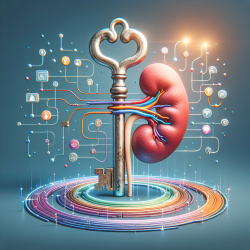Stress among students in academic settings is a growing concern, especially with the added pressures from the COVID-19 pandemic. The research article titled "The Evaluation of a Mind-Body Intervention (MBT-T) for Stress Reduction in Academic Settings: A Pilot Study" provides valuable insights into how Mind-Body Transformation Therapy (MBT-T) can significantly reduce stress levels in both undergraduate and graduate students.
Key Findings from the Study
The study involved 159 students, divided into two groups: first-year university students and postgraduate psychotherapy students. Both groups underwent a single session of MBT-T. The results were compelling:
- Undergraduate students showed a significant reduction in stress levels (t88 = 5.39, p < 0.001).
- Graduate students also exhibited a significant decrease in stress (t53 = 4.56, p < 0.001).
Why MBT-T Works
MBT-T, previously known as the Creative Psychosocial Genomic Healing Experience© (CPGHE), is a straightforward yet effective method for stress reduction. It consists of four stages:
- Focusing Consciousness: Enhancing self-awareness of thoughts and feelings.
- Problem Review: Assessing the thoughts and feelings related to the problem at hand.
- Problem Solving: Learning to cope with the problem.
- Self-Care: Applying learned coping mechanisms to current situations.
Implementation Tips for Practitioners
For practitioners looking to incorporate MBT-T into their therapy sessions, here are some actionable tips:
- Start Small: Begin with a single session to gauge its effectiveness.
- Customize: Tailor the four stages to fit the specific needs of your student population.
- Monitor Progress: Use tools like the Distress Thermometer to measure stress levels before and after the session.
- Provide Support: Encourage students to share their experiences and provide feedback.
Encouraging Further Research
While the results of this pilot study are promising, more research is needed to fully understand the long-term benefits of MBT-T. Future studies should consider:
- Conducting randomized controlled trials to validate the findings.
- Exploring the effects of multiple MBT-T sessions over an extended period.
- Investigating the impact of MBT-T on different demographics and educational settings.
Conclusion
Mind-Body Transformation Therapy (MBT-T) offers a practical and effective approach to stress reduction in academic settings. By implementing MBT-T, practitioners can help students manage stress more effectively, leading to improved well-being and academic performance.
To read the original research paper, please follow this link: The Evaluation of a Mind-Body Intervention (MBT-T) for Stress Reduction in Academic Settings: A Pilot Study.










